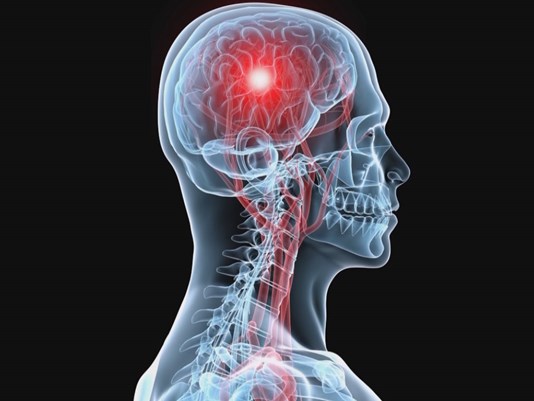Highlights:
- A small genetic “fingerprint,” known as a microRNA, was linked with stroke and the long- term effects of stroke on your body.
- MicroRNA levels can be measured from a simple blood test, creating the opportunity for a more affordable and more practical option than examining actual brain tissue or using other conventional tests.
- MicroRNAs naturally point to promising drug targets, so the findings of this study are more likely to lead to new medications that can reduce the extent of brain injury after stroke and help patients recover faster and more fully.
By Dr. Joel Salinas with staff insertions
Researchers at UT Health San Antonio and Massachusetts General Hospital identified a connection between a small genetic “fingerprint,” called a microRNA, and people who have experienced a stroke. MicroRNAs, which are products of gene functioning, were previously believed to be as insignificant as snippets of film left on a film editor’s cutting-room floor. However, over many years scientists have come to appreciate how these small pieces of genetic material found all over the body are more than leftovers—they play a critical role in turning genes on or off. This has major consequences on bodily functions and central processes in health, disease and recovery from injury.
“We wanted to see if there was an easier, non-invasive method to know what was going on at the molecular level in the brains and bodies of people at risk for stroke or who have experienced a stroke,” said Joel Salinas, M.D., M.S., M.B.A., a neurologist at the Massachusetts General Hospital McCance Center for Brain Health and one of the researchers leading the investigation at the Framingham Heart Study along with colleagues at the Glenn Biggs Institute for Alzheimer’s and Neurodegenerative Diseases at UT Health San Antonio. “Studying microRNAs in blood samples from hundreds of people who have had a stroke or who went on to have stroke seemed promising to us, because discovering patterns in microRNA levels might give hints about genetic chain reactions leading to stroke or that occur as a consequence of stroke. The added benefit of any links is that they almost immediately point to potential applications in drug development, because microRNAs by default are targets for pharmacologic intervention.”
Framingham Heart Study
Building off a prior study, researchers measured microRNA (miR) levels in available blood samples routinely collected in one of the largest and longest-running community-based research cohorts in the U.S., the Framingham Heart Study. They identified a significant reduction in miR-574-3p levels in the blood of people who had a stroke months and even years prior. To be as confident as possible in this finding, the researchers accounted for many other factors that could falsely influence their results, yet the findings remained the same.
“When we felt confident enough that spotting this link was unlikely to be just a fluke, we dug deeper to see what this finding with miR-574-3p meant for the biology of your brain and your entire body if you’ve had a stroke,” Dr. Salinas said. “We found this specific miRNA seemed to serve as an indicator of your brain’s response, and of systemic cellular response, to stroke in the short, medium and long term.”
Implications
The findings of this study will help inform future investigations into how these small—yet powerful—genetic mechanisms influence many related diseases and how targeting microRNAs with new potential drugs might confer a protective effect on a person’s resilience and recovery after stroke.
“We know many of the risk factors for stroke, such as hypertension, and have developed new drugs and interventions for the treatment of an acute stroke,” said Sudha Seshadri, M.D., professor of neurology at UT Health San Antonio, director of the university’s Glenn Biggs Institute and senior investigator with the Framingham Heart Study. “But we do not yet understand all the molecular and biological changes that occur in people who are at risk for stroke and those who have had a stroke. If we did, we could better predict and prevent downstream complications like dementia.”
MicroRNAs are messengers in the communication pathways within the cell and are emerging as an efficient way to understand and intervene in many brain diseases, Dr. Seshadri said. “We are excited to further expand our studies to more persons, and to persons of different race and ethnic backgrounds,” she added.
The study appeared in August in the journal PLOS ONE.
# # #
Stay connected with UT Health San Antonio on Facebook, Twitter, LinkedIn, Instagram and YouTube.
The University of Texas Health Science Center at San Antonio, now called UT Health San Antonio®, is one of the country’s leading health sciences universities. With missions of teaching, research, healing and community engagement, its schools of medicine, nursing, dentistry, health professions and graduate biomedical sciences have produced 36,500 alumni who are leading change, advancing their fields and renewing hope for patients and their families throughout South Texas and the world. To learn about the many ways “We make lives better®,” visit www.uthscsa.edu.
# # #
Massachusetts General Hospital, founded in 1811, is the original and largest teaching hospital of Harvard Medical School. The MGH Research Institute conducts the largest hospital-based research program in the nation, with an annual research budget of more than $925 million and major research centers in HIV/AIDS, cardiovascular research, cancer, computational and integrative biology, cutaneous biology, genomic medicine, medical imaging, neurodegenerative disorders, regenerative medicine, reproductive biology, systems biology, photomedicine and transplantation biology. The MGH topped the 2015 Nature Index list of health care organizations publishing in leading scientific journals and earned the prestigious 2015 Foster G. McGaw Prize for Excellence in Community Service. In August 2018 the MGH was once again named to the Honor Roll in the U.S. News & World Report list of “America’s Best Hospitals.” To learn more about the MGH Henry and Allison McCance Center for brain health, visit www.massgeneral.org/brain-health.


